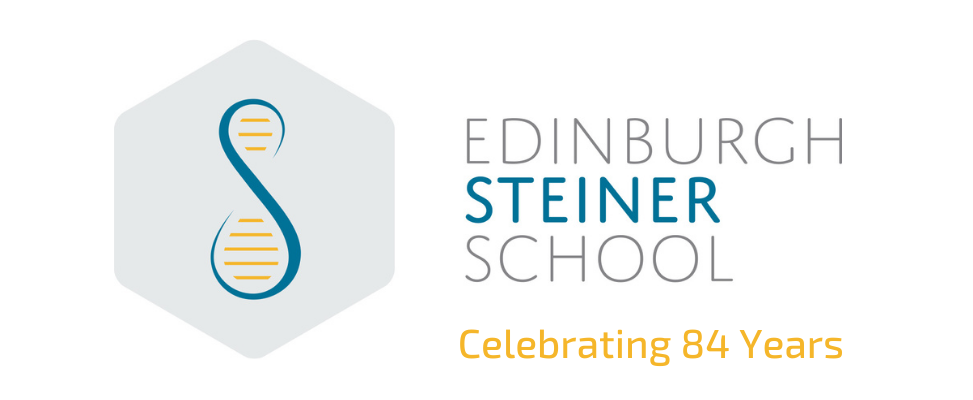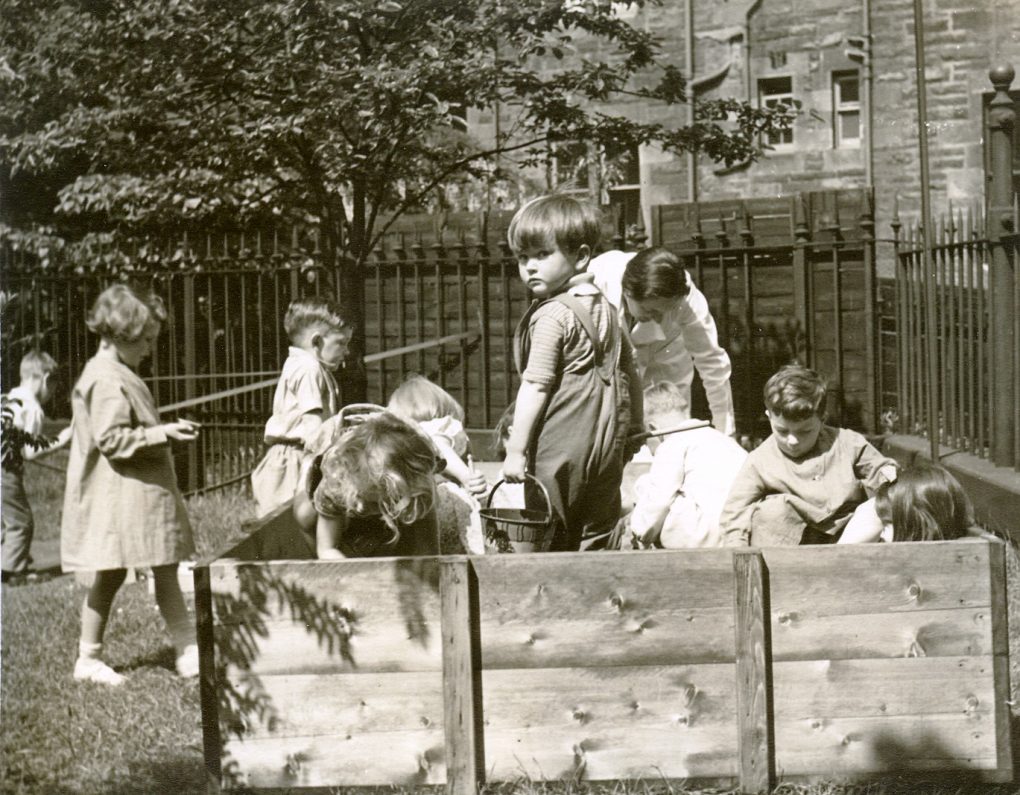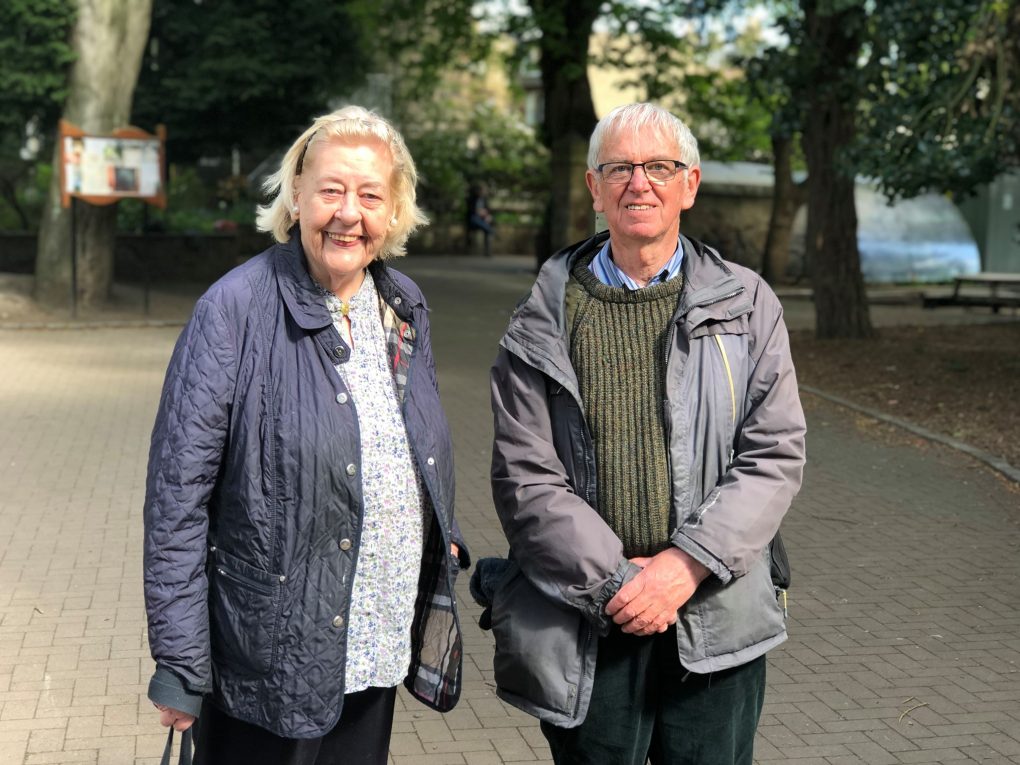Edinburgh Steiner School’s 84th Anniversary
Tue May 2, 2023


The School in Edinburgh’s Capital was one of the oldest Steiner Waldorf school in the UK, opening its gates twenty years after the first school was established in Stuttgart in 1919. Managing director of the former Waldorf-Astoria Cigarette Company in Germany, Emil Molt and his wife Berte, turned to their friend Rudolf Steiner to help them set up a school for the children of their employees.
Rudolf Steiner could see the urgent need for human beings to view themselves as beings of body, soul, and spirit, to avoid the kind of brutal view of pure materialism that had led them into war. Steiner could see that for a future worthy of human beings and of human endeavour, this inclusion of the spiritual side of all people must be accomplished. The philosophy (Anthroposophy) behind the education can be applied to all walks of life and it is out of this that the teachers work. The philosophy itself, however, is not taught to the children. (Read: A Steiner Education).
Then called the Rudolf Steiner School of Edinburgh, our first ever class met in 1939. Denis Wight, pictured above in the campus sandpit as a Kindergartener, was the first pupil to be enrolled. Now 89 (pictured below), he returned as a teacher years later, before joining the Anthroposophical Association as the Treasurer.

Denis Wight (pictured above as a Kindergarten child and here at School’s 80th Founder’s Day with former classmate) was the first pupil enrolled in the school.
Denis’s classmate, Shirley Noakes, now 90, was also one of the first cohort before the school was evacuated to Kelso. Graduating in 1950, she too later returned as a teacher, retiring in a school year that caused an almost unprecedented disruption to the pupils’ education: the Covid pandemic. Only the relocating of the entire school to the Borders during World War II comes close. Shirley experienced both – the former failing to bring a halt to her Steiner Waldorf education, but the latter sadly bringing to a close an active relationship with the school stretching eight decades.
The outbreak of war had a positive impact on Steiner schools across the world, as after Germany’s schools were closed by the Nazis, their teachers moved to other countries to teach. This is said to be responsible for the sharp rise in popularity in Steiner education in Edinburgh, with pupil numbers rising from seven to 300 in just 15 years.
Steiner education is based on the work of Dr Rudolf Steiner, a philosopher and scientist who lived from 1861 to 1925. Dr Steiner inspired what has become a worldwide movement of schools that promote universal human values. Steiner schools are always co-educational and fully comprehensive. They take pupils from the age of two to ideally 18, and welcome children of all abilities, and from all faiths and backgrounds. The Steiner ethos aims to provide an unhurried and creative learning environment, where children can find the joy in learning.
It works on the principle of “head, heart and hands”, giving children classes in everything from traditional maths and English to farming and house-building through the cornerstone Main Lesson Programme, unique to Steiner Waldorf schools. Although technologies have moved on, the ethos is the same.
There are now over 1,100 schools on every habitable continent, and 2,000 Kindergartens. Today, Edinburgh Steiner School offers:
- Early Years provision through its Parent and Child Groups (for babies and toddlers with their parent or carer), Seedlings (for children aged two and over), and Kindergartens for children from 3.5 – 6 years old.
- a Lower School for pupils to begin formal learning in their seventh year to Class 8 (until age 14), and an Upper School for pupils aged 14 – 18 years old.
- a Teacher Training Centre offering Courses accredited by The University of Edinburgh at SCQF Level 10 for CPD as well as a Professional Diploma in Steiner Waldorf Education.
- is a centre for the suite of Crossfields Integrated Education qualifications. Nobel Laureate and Waldorf Graduate Thomas Sudhof is patron of the ACTS project from which these portfolio-based qualifications derived. Edinburgh Steiner School was an opriginal collaborator in this 3-year project.
- Recognising pupils are profoundly affected by their built environment, the School’s Growing Spaces Project is a long-term campus development project working towards the conservation and sustainability of the school buildings for the future.
- The School has a Student Council, Environmental Action Group, After School Club, Extra Curricular Activities, a Summer Club, and an annual Christmas Market.
- Widening social inclusion: It is a Partner Provider to Edinburgh City Council, offering 1,140 hours early learning and childcare to 2, 3 and 4 year olds in Scotland in its Seedlings and Kindergartens. It is registered to offer Tax Free Childcare to under 12s. And offers a bursary to eligible families, helping to meet up to 40% of fees. Run as a not-for-profit, its tuition fees are lowermost out of all 34 independent schools in Scotland.
- It has an Alumni Association, build links with our global community of former Edinburgh Steiner School pupils.
- Edinburgh Steiner School and Drumduan in Forres in Scotland offering an all-through school based upon the principles of the internationally recognised Steiner Waldorf curriculum. Other UK Steiner schools are listed here.
In 2018, the Rudolf Steiner School of Edinburgh rebranded to Edinburgh Steiner School; and a new logo and website was designed.
Still the largest and fastest growing global educational movement, Steiner schools typically experience a high number of disaffected pupils needing a more integrated, holistic educational approach; one that recognises them as individuals with different thinking and learning styles. Edinburgh is a flagship school.
BROAD EDUCATION
The cornerstone of a Steiner Waldorf education is the Main Lesson Programme offering over 100 subjects over a pupil’s school career. This wide-ranging approach is something Curriculum for Excellence is striving to achieve.
TRANSITIONS
A key area that is debated often in the welfare of children is the effect of transitioning between nursery, primary and secondary. Last year an international study by Dundee University commissioned by the Scottish government provided eight key recommendations for optimal transitions. At ESS the transition is seamless (read: A Curriculum of Seamless Transitions)
STARTING SCHOOL IN SEVENTH YEAR
Steiner schools are the only schools that does not start formal learning until children are in their seventh year. There is no standardised testing until National 5s.
SHORT FILMS
- Importance of Early Years Education
- Overseas Pupils
- Recognizing the Individual
- Interdisciplinary Learning
- Sustainability, Community
- Edinburgh Steiner Teacher Education Course (ESTEC)
- Now We Are Six
Perhaps of interest:
Our People: Board of Trustees, Management, Teachers and other Departments of the School.
An Essential Guide To Steiner Waldorf Education at Edinburgh Steiner School (in production)
School News and Waldorf films
